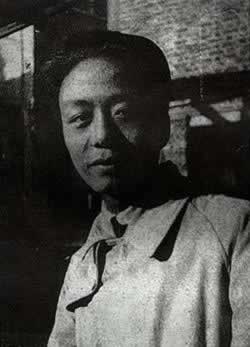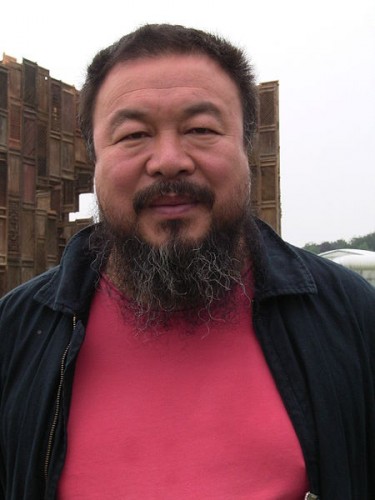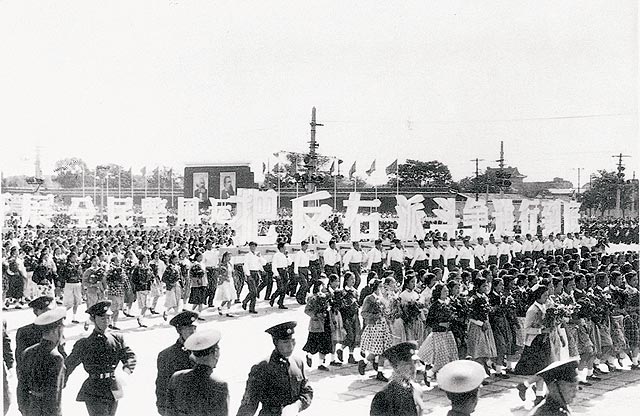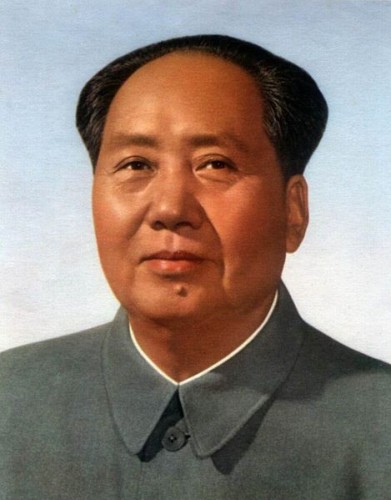The Silence that Preceded China’s Great Leap into Famine
Mao Zedong encouraged critics of his government—and then betrayed them just when their advice might have prevented a calamity
![]()
In February 1957, Chairman Mao Zedong rose to speak to a packed session of China’s Supreme State Conference in Beijing. The architect and founding father of the People’s Republic of China was about to deliver what one scholar described as “the most important speech on politics that he or anyone else had made since the creation of the communist regime” eight years before.
Mao’s speech, titled, “On the Correct Handling of Contradictions Among the People,” began with a broad explanation of socialism and the relationship between China’s bourgeoisie and working class. Joseph Stalin, he said, had “made a mess of” unifying the classes in the Soviet Union. In a section of his speech that the Communist Party would delete before publishing the text in the Peoples Daily, he claimed that China had learned “from the mistakes” of the Soviets, who had killed too many people they should not have killed, as well as from those of the Hungarian communists, who had not executed enough. He acknowledged that the Chinese government had killed 700,000 “counterrevolutionaries” between 1950 and 1952, but said, “Now there are no more killings.” If the government had not carried out those executions, he claimed, “the people would not have been able to lift their heads. The people demanded their execution and the liberation of the productive forces.”
Yet Mao’s speech may be best known for marking the beginning of the Hundred Flowers Movement—a brief campaign that ended in the betrayal of the principle on which it was based and the people he had invited to take part. A few months earlier, as anti-Soviet demonstrations erupted in Eastern Europe, Zhou Enlai, China’s popular and highly influential premier, had emphasized a greater need for China’s intellectuals to participate in governmental policy-making. “The government needs criticism from its people,” Zhou proclaimed in a speech. “Without this criticism the government will not be able to function as the People’s Democratic Dictatorship. Thus the basis of a healthy government lost.…We must learn from old mistakes, take all forms of healthy criticism, and do what we can to answer these criticisms.”
Mao, in his speech before the Supreme State Conference, declared his support for a policy of allowing criticism of the bureaucracy, provided that writers and intellectuals put forth competing ideologies and opinion and did not engage in “destructive acts.” “Let a hundred flowers bloom” Mao declared, borrowing a line from a Chinese poem, “let a hundred schools of thought contend.” Such a campaign, he said, would allow truth to emerge from a sea of falsehoods. He even mentioned the Chinese writer Hu Feng, who had been detained in 1955 for publishing his “three-hundred-thousand-word letter,” which accused Mao of politicizing art and literature:
Among these hundred flowers blooming forth there are…all kinds of different flowers. They include flowers of different types. For example, among the hundred schools contending, idealism is present. Let a hundred flowers bloom. It may be that Hu Feng is locked up in his cell, but his spirit still roams the country, and we might still see some more works like his appear. It is all right if don’t engage in destructive acts. What was it about Hu Feng? He organized a secret group; and that was something he should not have done. If only he had not organized a secret group…. What do a few flowers matter in a land of our size—nine million square kilometers? What’s so upsetting about a few flowers? Let them bloom for people to look at, and perhaps criticize. Let them say, “I don’t like those flowers of yours!”
At first, Zhou told Mao, writers and intellectuals were wary and skeptical of what would be called the Hundred Flowers Movement. He advised Mao to encourage the central government to help create an exuberant response to the policy, reassuring intellectuals that their criticism was not only welcome but necessary for reform. Soon, writers, lawyers, academics and scientists began speaking out, criticizing party cadres for meddling and obstructing important work. Students began protesting low standards of living, pointing out the hypocrisy of corrupt party members enjoying privileges at the expense of the workers.
By the summer of 1957, millions of letters began to arrive at Zhou’s office. Some of them adhered to the constructive criticism he envisioned, but many rose to what Mao later described as a “harmful and uncontrollable” pitch. A “Democratic Wall” had been erected at Beijing University, with posters criticizing the Communist Party. There were calls for the Party to give up power through transitional governments, claims that communism and intellectualism could not co-exist, and demands for more freedoms. Some posters attacked Mao himself.
Mao began to sense that the movement was spiraling out of control, and in July, he quashed it. The “fragrant flowers,” he announced, must be distinguished from the “poisonous weeds”; criticism would no longer be tolerated. In the Anti-Rightist Campaign of 1957, critics and detractors were rounded up by the hundreds of thousands and shipped off for execution or re-education through labor. The Hundred Flowers Movement, Mao would later say, had “enticed the snakes out of their lairs.”

The Chinese poet Ai Qing, the father of artist Ai Weiwei, began an exile of nearly 20 years during the Hundred Flowers Movement. Photo: Wikipedia
The government’s treatment of Ai Qing, one of China’s first modern poets, was typical. He had joined the Chinese Communist Party in 1941, and after the party took power in 1949, Ai Qing consulted with Mao on China’s literary policies and traveled the world representing the government. But in 1957, after he defended the writer Ding Ling against accusations that she was a “rightist,” Ai Qing was denounced and stripped of his writer’s association membership and his possessions. He and his family were exiled to the new city of Shihezi, in the remote region of Xinjiang in northwest China, where they lived amid squalor and hunger. Among hundreds of thousands of “Reform through Labor” convicts, he was assigned to cleaning public toilets seven days a week. After he and his family were relocated to a farm on the edge of the Gobi Desert, they lived in a “pithouse,” a cave-like structure that had been built for the birthing of livestock.
Ai Qing performed backbreaking work until he was in his 60s, moving heavy stones in construction assignments at labor camps. At times, he was paraded in public, forced to wear humiliating signs while villagers taunted him and threw paint in his face. Prohibited from writing, the poet attempted suicide several times.

Ai Weiwei, one of China’s most famous contemporary artists and dissidents, grew up in exile in “Little Siberia.” Photo: Wikipedia
By the end of the Cultural Revolution, in 1976, Ai Qing was deemed “rehabilitated,” and after nearly twenty years in exile, he was allowed to return to Beijing with his family. His son Ai Weiwei remembers one advantage he had as a child: when he wasn’t working in a factory, he was going to schools where the teachers were exiled intellectuals. He may have grown up in a remote land known as “Little Siberia,” but the exposure to writers and artists living in exile, and the indelible stamp of a government’s suppression of ideas and free speech have all played a vital role in Ai Weiwei’s work today, and helped him become China’s best-known contemporary artist and highest-profile government critic.
The tragedy of the Hundred Flowers Movement was compounded by its timing: critics of the government were silenced just as Mao tried, with the Great Leap Forward, to transform China quickly into a modern industrialized state. The social plan, which lasted from 1958 to 1960 and mandated collective farming, led to catastrophic grain shortages and a famine that killed tens of millions of Chinese. Mao ensured that no one dare speak out about the potential for catastrophe.
Sources
Books: Robert MacFarquhar, The Origins of the Cultural Revolution, Volume 1, Contradictions Among the People, 1956-1957, Oxford University Press, 1974. Mao Tse-tung, Selected Works of Mao Tse-tung, On the Correct Handling of Contradictions Among the People, February 27, 1957, http://www.marxists.org/reference/archive/mao/selected-works/volume-5/mswv5_58.htm Robert Weatherley, Politics in China Since 1949: Legitimizing Authoritarian Rule, Routledge, 2006.
Articles: “Original Contradictions on the Unrevised Text of Mao Zedong’s ‘On the Correct Handling of Contradictions Among the People’,” by Michael Schoenhals, The Australian Journal of Chinese Affairs, No. 16, July, 1986. ”An Early Spring: Mau Tse-tung, the Chinese Intellectuals and the Hundred Flowers Campaign,” by John M. Jackson, 2004. http://filebox.vt.edu/users/jojacks2/words/hundredflowers.htm
Film: Ai Weiwei: Never Sorry: A film by Alison Klayman, MUSE Film and Television, 2012.
/https://tf-cmsv2-smithsonianmag-media.s3.amazonaws.com/accounts/headshot/gilbert-king-240.jpg)


/https://tf-cmsv2-smithsonianmag-media.s3.amazonaws.com/accounts/headshot/gilbert-king-240.jpg)